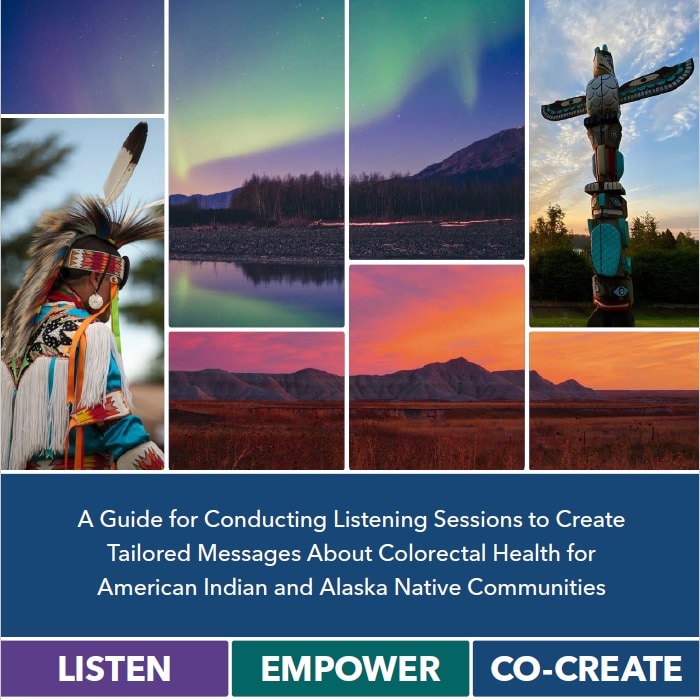What to know
This is a guide for public health programs looking to develop tailored messages to increase colorectal cancer screening among American Indian and Alaska Native communities.
Overview
By considering specific cultural considerations such as community dynamics, language preferences, or health care trauma, the guide seeks to address barriers to health communication and build upon the existing strengths and commitment to health in these communities. By incorporating stories or messaging from the community that highlight culture and resilience, health communication can be tailored to improve health behaviors such as accessing preventive health screenings.
This guide provides details on how to implement a community engagement session, also known as a Listening Session. It is designed to help public health programs learn from Indigenous populations about barriers and gaps in care (listen), share health information in a collaborative way (empower), and develop messages and materials that resonate with and motivate community members to take control of their own health (co-create).
Who should use this guide?
The intended audience for this guide is public health program leaders working to increase colorectal cancer screening and awareness in American Indian and Alaska Native tribal communities. These individuals can use this community engagement process to create and promote tailored colorectal cancer screening messages for the community.

Additional resources (videos, clinic posters, and postcards) co-created with tribal communities to increase colorectal cancer screening are available.
